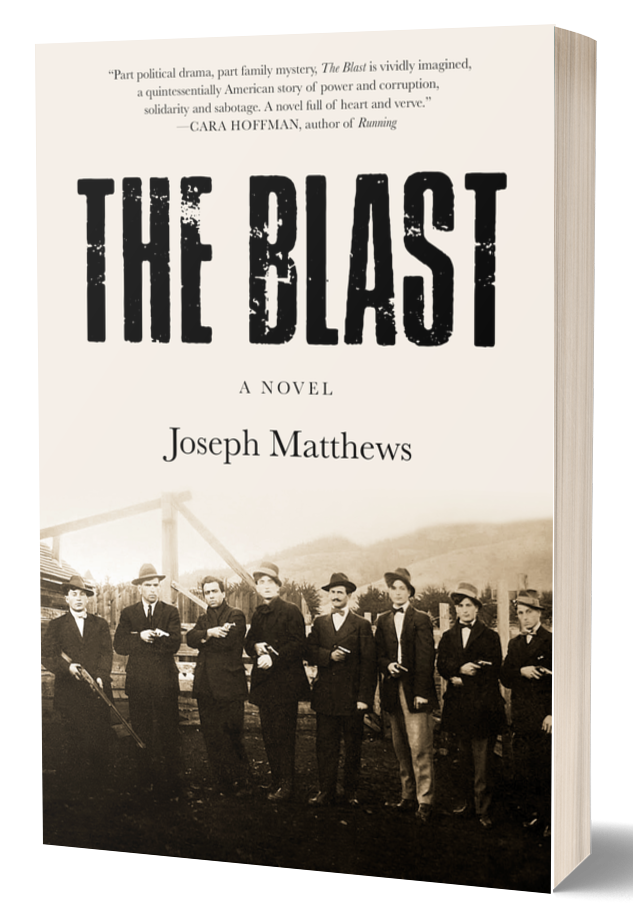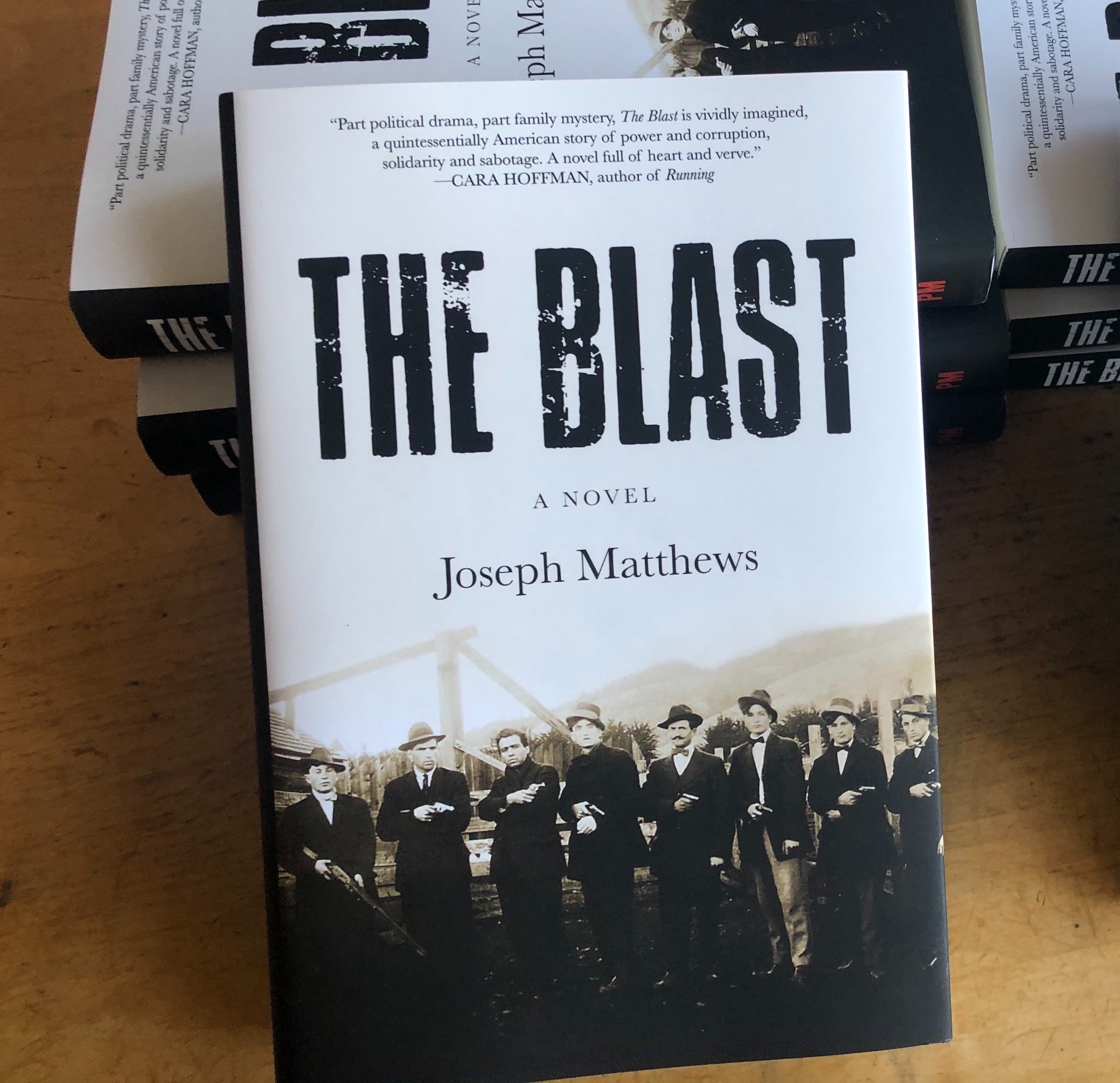By John L. Murphy
Spectrum Culture
Where today boutique hotels and burgeoning lofts rise, a modest intersection less than five hundred feet from San Francisco’s Ferry Building sits in the shadows of an urban canyon, often shut out from the sun. Among even the rare natives of The City, very few may recall what over a century ago made this South of Market byway infamous. A longtime resident, with a background as a criminal defense lawyer in the Bay Area, Joseph Matthews finds a suitable setting for this historical drama. The Blast erupts among outcasts, anarchists and spies, reliable figures to spark the imagination and, in this case, fire more than imaginary shots.
Two characters, in familiar cat-and-mouse play, introduce readers to this rowdy Californian metropolis, a magnet for rubes and suckers since the Gold Rush. For those ready to fleece greenhorns prospered more than most of those prospective prospectors. Matthews depicts the city’s Italian community which, by the turn of the 20th century, had established its own schemes to separate men from money. Baldo “Blue” Cavanaugh, as his name denotes, half-Sicilian, half-Irish, returns to his hometown, graced or cursed with skills fitting a denizen of dark corners and dank alleys. He and another new arrival to The City, Kate Jameson, soon cross paths. She’s taken up the offer to inform the Feds about subversives seeking to aid the enemy as America inches towards entry into the Great War.
Kate’s not motivated by the Stars and Stripes unselfishly. She takes this all-expenses-paid opportunity to track down her estranged daughter, Maggie. As she seeks to eavesdrop on what the local stuffed shirts plan as to war profiteering rather than pacifist isolationism, she suffers as she relives memories of her husband Jamey. He had landed in San Francisco after an earlier imperialist folly, the American occupation of the Philippines. Enduring what far too many of Jamey’s comrades soon would call shellshock, his presence haunts her pursuits.
The scope of The Blast (a title with more than one resonance for the time) spans Dublin and London, Boston and Cuba as well. The aftermath of the United States’ takeover of far-flung Spanish colonies, and the rise of America’s own empire, echoes throughout the intricate, immersive narrative. Katy muses how San Francisco felt like a “liberated zone.” For to her “it seemed that what you did with yourself counted for as much as where and what you’d emerged from, since for so many people in that young, tumultuous city, the ‘where’ and ‘what’ were not only far away but also hazy with the distance.” However, the challenge Matthews’ research creates demands characters whose inner monologues convey faithful expressions of those for whom eloquence or self-articulation might be elusive.
The brooding, dense pace slows to enter the minds of the protagonists. Yet, the tendency to interpret for the fictional voices expressing political theory, praising fine or humble dining and the relentless pressures exerted by cruel Capital upon doughty Labor, leaves a reader sensing the author’s ideas conveyed through figures who think deeply but speak awkwardly, or, with too polished a sensibility to grant to many daily workers. Tighter editing could have quickened action and streamlined the backstory and backdrops in this novel of ideas posing as a thriller.
The Blast leads up to Preparedness Day in July 1916. The half-year darkens with more than one violent impact already, and its ripples sweep up none other than firebrand Emma Goldman, suffragette Emmeline Pankhurst and Thomas Mooney, organizer of the evocatively named union of the Molders. What transpires on Steuart Street provides a fitting, tragic and maddening example of “civil unrest” made deadly. In the service of their causes, those caught up in this tension will find their own fates tangled. Given the current and recurring threats of wars on terror, the insertion of informers into radical ranks, rallies for dubious ideals, with propaganda peddled and rumors warped, The Blast delivers a thoughtful tale of toil and turmoil. And for some in its audience, an introduction to “direct action.”







